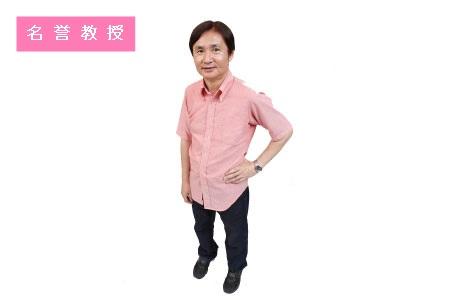KUSUMOTO Tetsuya

- 役職/
Position - Professor at Institute of Japan Studies
- 研究分野/
Field - Japanese Language / Japanese Language Education
Grammar of the Japanese language is fascinating if you think outside of the box
My expertise is grammar of the Japanese language, but it is a little different from kokubunpo [Japanese grammar]. My studies are conducted within the framework of teaching Japanese to foreign nationals. As such, it may be more appropriate to say that I conduct objective analyses of Japanese grammar by thinking outside of the box, or that I analyze Japanese as a foreign language.
Let me give you one example. "Watashi wa gakusei da" [I am a student]--this is a phrase you often see in a Japanese language textbook. There is also the following similar phrase. If asked "Anata no kobutsu wa?" [What is your favorite food?], you can answer "Watashi wa unagi da" [Mine is eel]. This sentence makes no sense to foreign nationals who are accustomed to Western logical grammar.
"XX is the subject and XX is the predicate"-type explanations are no use here. I explain to foreign nationals that the Japanese language attaches importance to the topic of a sentence, and therefore, sentences are sometimes structured in a way that places the topic at the forefront.
In a lot of cases, native Japanese speakers use "wa" and "ga" unconsciously, without thinking about the differences between them because they are used intuitively. Foreign nationals who are learning Japanese from zero, however, must build up their own Japanese database. How you teach concepts that will help foreign nationals in this process is critical. Although Japanese is considered a difficult language to learn, I personally think it is among the easier ones to learn among the languages of the world. The difficulty with Japanese is not its structure but its usage. As is true with the "Watashi wa unagi da" example, the Japanese language tends to rely on the context and situation. It is also heavily influenced by culture. In this sense, it may be more effective to teach Japanese to beginners not by starting with the forms and composition of sentences, but by interweaving cultural dimensions.
To this end, it is very important that we question what normally seems obvious to us, and thereby, discover something new. By doing this, grammar will become a fascinating discipline, even for the many people who may be thinking that grammar is difficult and boring!




